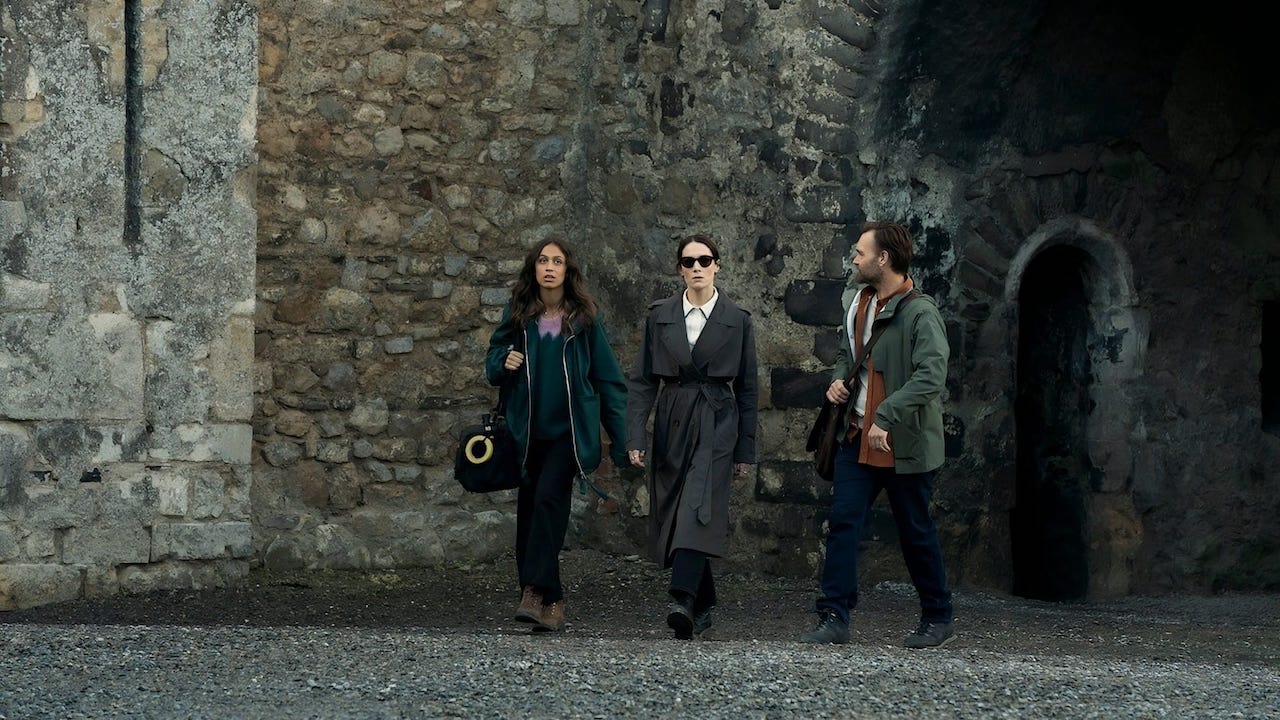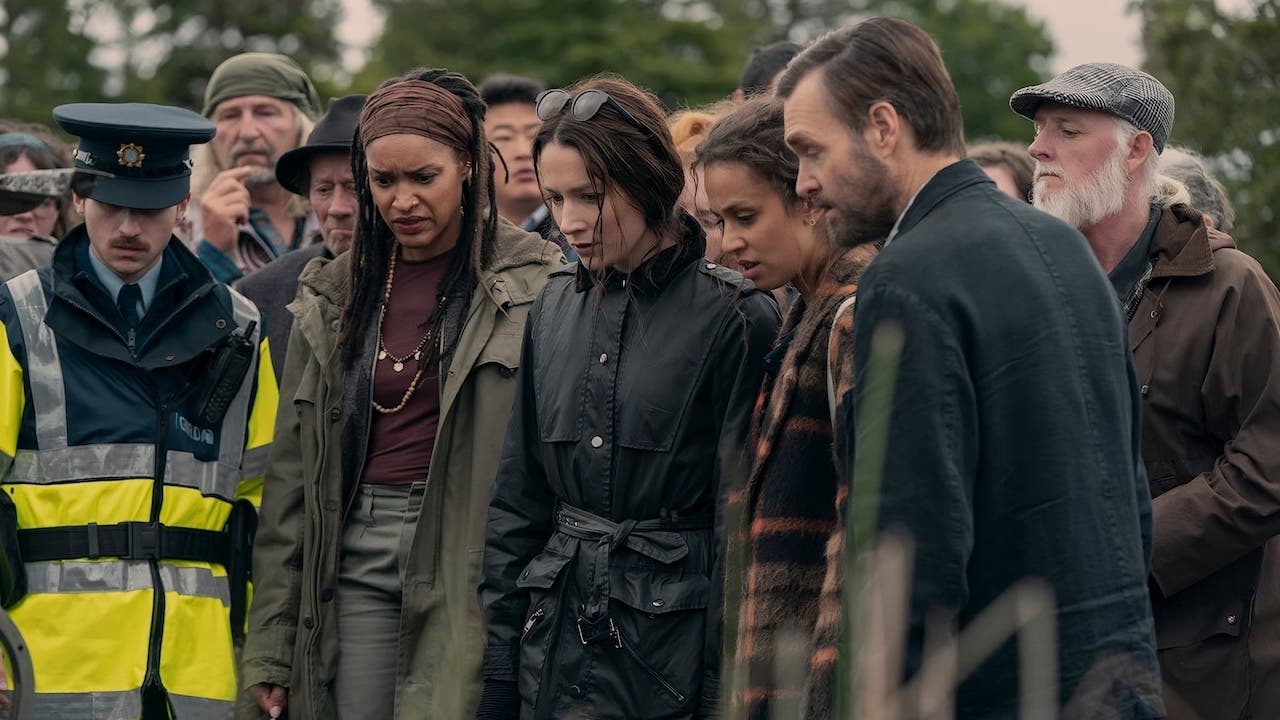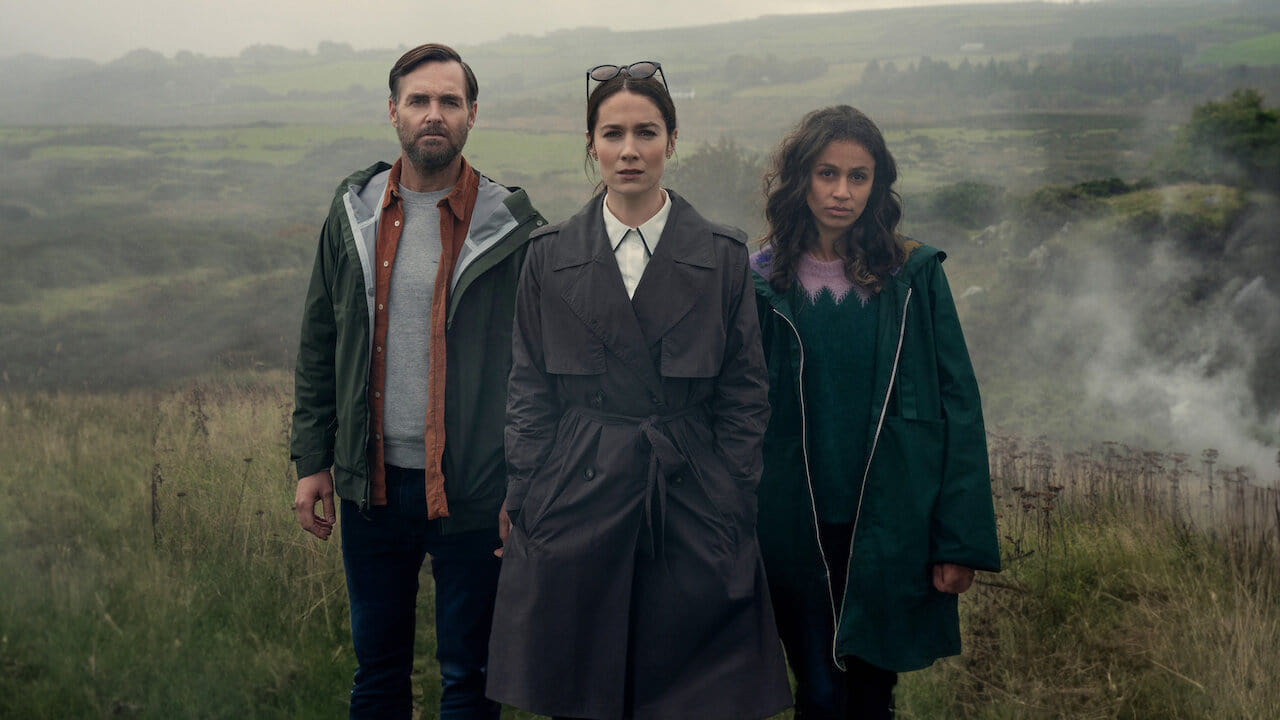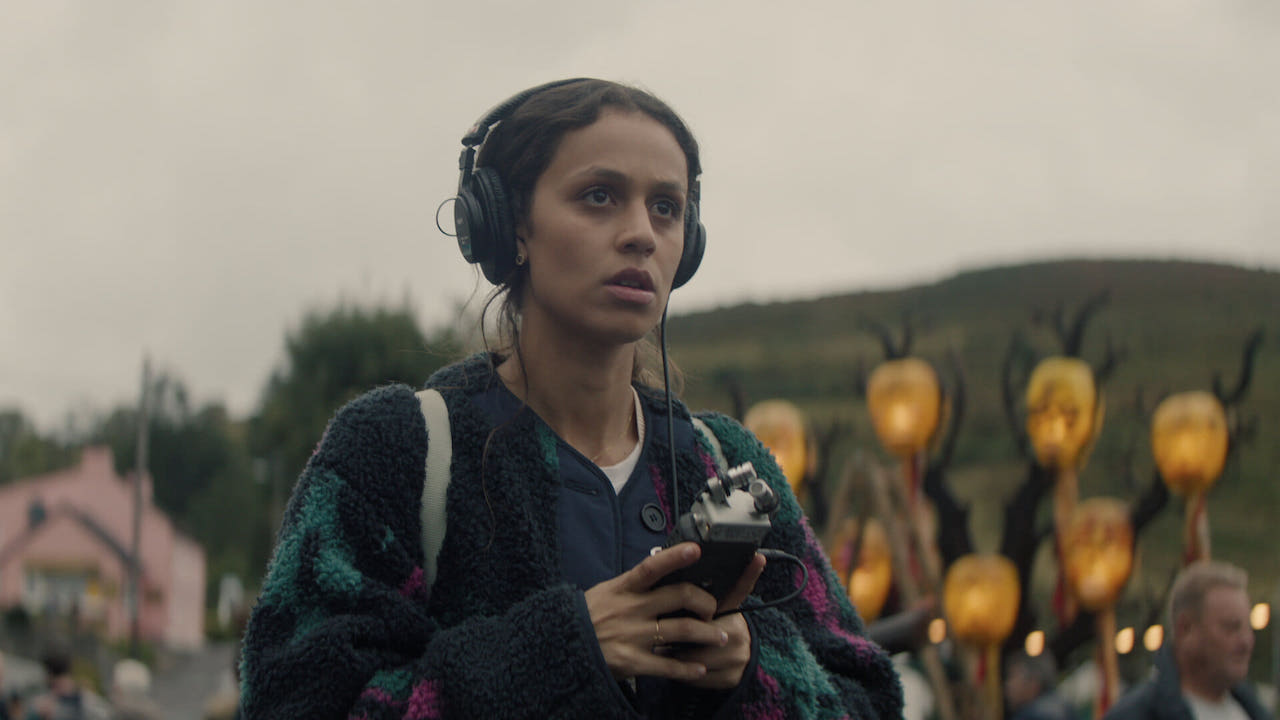Netflix excuses itself for true crime exploitation in Irish mystery Bodkin

In new “dark comedy” Bodkin, true crime podcasters get in over their heads investigating a small Irish town’s cold case. But does the show have an intriguing original mystery to share, or any real insight to the true crime genre’s moral flaws? Eliza Janssen reviews the first four episodes, just to be sure, to be sure.
The reason Guinness is Ireland’s most popular brew, we’re informed in an early episode of Netflix mystery Bodkin, is that it forces us to wait. All of life’s other little miseries and mundanities, from missing persons to illegal eel smuggling and the barrage of shameless true crime podcasts, come at us all too fast. A proper glass of Guinness must sit on the bar counter for a good minute to separate before its last, merciful top-up, giving us time to meditate on our woes before the black stuff helps wash them away.
Unfortunately, Bodkin itself isn’t such a rewarding waiting game, taking far too long to brew into a crime series worth watching. Despite its compelling setting in a small Irish town and a premise that falsely pledges to deconstruct the shallow facade of redemptive true crime “justice”, the series ends up feeling overlong, inconsequential and repetitive. You might need a few pints of gat to get through it.
Siobhán Cullen plays scowling investigative journo Dove, who couldn’t be more unhappy about her collab with perky American true crime podcaster Gilbert (Will Forte) and his research assistant Emmy (Robyn Cara), even as their project lands them in the tiny, titular coastal town in her homeland of Ireland.
They’re attempting to uncover the truth about a decades-old cold case that took place during the Halloween-y festival of Samhain, and that golden cultural nugget—plus the pilot’s witchy, slick graphic designs of crows and omens—made my ears prick up. Could this wind up as a secret folk horror series, I hoped, with mythic bog creatures and dark villager rituals giving Forte and co. a bunch of spooky stuff to hilariously react to?
Alas. It takes us three long episodes to get to a body, let alone any big reveals that’d have seasoned crime fans smacking that “next episode” button with any real haste. There are some near-tantalising hints that the series yearns to be The Wicker Man or even just Hot Fuzz, with lilting villagers lying to Gilbert’s face about their connections to the three missing people. But more often, the same plot sequences and imagery are deployed time and time again. First, the gang’s flighty driver leaves them stranded without a car, forcing them to walk along gorgeous slate-lined country roads; then Dove gets a call from her editor about her inciting traumatic incident, a disastrous NHS piece that’s left her in a guilty position, and is warned to play it safe; then she locks eyes with an envisioned dream-wolf, a bit of standard mystical imagery that never escalates into anything stirring.

Irish actor David Wilmot (loved him in Station Eleven) leaves a strong impression as the archetypal grizzly local with a shady past. He does his best with countless lines of dialogue about how “there are some questions that aren’t meant to be answered”, some rephrased version of that sentiment closing out every episode. I’d love to say that Will Forte’s comedic sensibility adds a lot to the otherwise generic murder-mystery structure of the series, but the truth is that creator Jez Scharf would’ve been better off letting MacGruber himself simply riff on the uber-parochial idiosyncracy of the Irish setting.
Gilbert is perhaps intended to be a clueless yank tourist, blustering his way through a doomed cash-grab podcast as the women with whom he works actually solve the case in the background. As the show develops, he’s neither a hilarious fish-out-of-water nor a likeable schlub with hidden depth, which is a shame since we know from 2013’s Nebraska that pathos isn’t out of his ballpark.
When he shares eye-opening insights such as, “it turns out death is every bit as surprising as life itself”, it doesn’t feel as though Bodkin is cleverly satirising the superficial, amateur detective work of the true crime machine. Once surly Dove drinks the clover-green Kool Aid and gets into the investigation, too, the show also abandons any pretence of challenging outsiders’ appropriative view of Irish tradition, leaning into the adorable blarney of the setting whole-heartedly. It’s self-consciously quirky, with episode three’s raucous funeral wake livening things up momentarily since every character gets sloshed; their lack of inhibitions at least lubricate the investigations a tad.

Netflix’s position as the series’ streaming home makes it feel less like an excoriating subversion of the genre and more like self-forgiving apologia. The streaming platform has been a powerful pedestal in the modern respectability and wildfire popularity of true crime, from celebrated shows like Making A Murderer and The Staircase to COVID-era phenomena such as Tiger King.
This entry, however fictional, tellingly reminded me of the docuseries Sophie: A Murder in West Cork from a few years back. My mum and I watched both Bodkin and that series together, both shows eliciting identical exclamations of “aw how sad!” and “we have to go there for a road trip and buy cable-knit jumpers and drink whiskey!” It’s not hard to imagine some Netflix head honcho grabbing the “Ireland” and “true crime podcast” Post-It notes off the “What Worked Before” whiteboard and slotting them back into this year’s lineup.
Just recently the service attracted ire for allegedly using AI to help spritz up real photos of the titular murderer in documentary What Jennifer Did, a decision that really challenges the validity of the term “creative” when it comes to creative non-fiction storytelling. Netflix may feel no shame about fully inventing new evidence to beef up their exposes of humanity’s grimmest behaviours for the pleasure of podcast-listening, serial-killer-obsessed subscribers. Why would they bother to characterise their fictional true crime bloodhounds as anything more exciting than harmless and ineffectual?

I’m tired of small-town cold case mysteries. I initially empathised with Cullen’s moody sleuth writer, as the only stories that seem to make money from my native country, too, are gritty murder yarns with dinky rural settings that reveal dArK hiDdEn SeCRetS! You’d think that by now, after a million talking heads about how “he just seemed like the boy next door” and that “it could never happen in a town like this”, we’ve come to understand that crime doesn’t just happen in worldly urban environments. It’s no longer novel to see that murder is done to, and by, ordinary people with mundane lives; people who live in sleepy and old-fashioned locales; even white people with nice accents! At this point, in fact, the wide-eyed “in our own backyard!” act is a tad insulting in its inaccuracy.
You can see why I might’ve hoped that Bodkin exploded into some surreal Irish folklore ghoulishness. I just got to the sixth, bonkers episode of Apple TV+’s Sugar, a series which dwells in a generic and overfamiliar detective space (Los Angeles noir, in this case) before a single insane twist shows that the producers understand we’re beyond the need to replay the same-old same-old. That’s the show I’ll continue watching, while Bodkin leaves me standing at the bar, complaining that my cup of Irish crime and half-hearted media satire didn’t taste fresh.

















